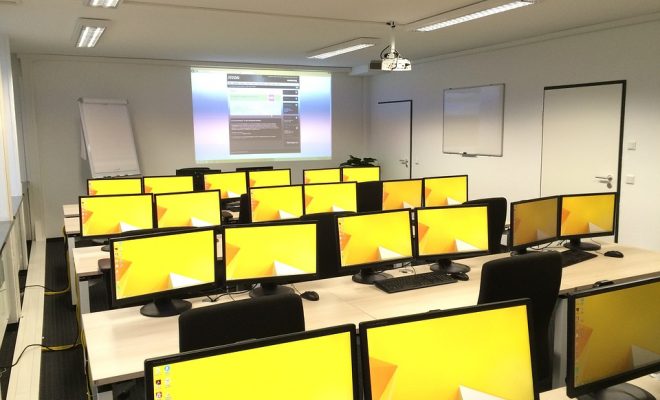While rethinking admissions process, consider creativity

James C. Kaufman, University of Connecticut
The Turning the Tide report released last week by the Harvard Graduate School of Education has colleges and universities across the country taking a hard look at what many believe is a deeply flawed admissions process.
A number of colleges have already been reexamining their admissions process. In September last year, more than 80 leading colleges and universities announced the formation of the Coalition for Access, Affordability and Success, so as to make changes in the admissions process and diversify student bodies.
The new report characterizes the message being sent by colleges to high schools “as simply valuing their achievements, not their responsibility for others and their communities.” It asks college admissions officers to take the following three primary steps to improve the admissions process so that it is fairer and inculcates a concern for others:
- promote more meaningful contributions through community service and other engagement for the public good
- assess how students engage and contribute to family as well as community across race, culture and class
- redefine achievement in ways that level the playing field for economically diverse students and reduce excessive achievement pressure.
However, what often gets left out of admission criteria is a student’s creativity. As a creativity researcher, I have studied many aspects of creativity that reinforce the idea that creativity is a valuable and necessary attribute for students in the 21st century.
Why measure creativity?
Creativity can be seen at all levels – from young children to geniuses. Creativity can help us discover new things, from the next generation of smartphones to new ways of recycling our trash.
It enables us to make art, tell stories, design buildings, test hypotheses and try new recipes. Indeed, creative people have been found to be more likely to succeed in business and be happier in life.
There is a growing volume of research that shows putting greater emphasis on creativity assessments in the college application process could provide a more holistic impression of students’ potential. Right now, we look only at a narrow range of abilities, which means that we over-reward people with certain strengths and penalize people with other strengths.

SAT is a better predictor of success for white students.
Dennis S. Hurd, CC BY-NC-ND
Studies have shown that the most widely used standardized performance tests for college admission, the SAT, is a better predictor of college success for white students than African-American and Hispanic-American students.
However, creativity assessments are more likely to be gender- and ethnically neutral, thereby avoiding the potential for bias.
A study we conducted recently on more than 600 college applicants compared applicants’ performance on a series of online tests assessing various forms of creativity to application data, which included SAT scores, class rank and college admission interview scores.
We found that traditional admissions measures (SAT scores and GPA) were only weakly related to the creativity measures. Further, people with high creative self-efficacy (i.e., people who think they are creative) did slightly worse on some admission tests.
We are continuing to capture data about students over the course of their college careers to assess whether including creativity tests with traditional admissions measures can better predict student outcomes such as retention, college success and graduation rates.
Assessing creativity makes a difference
We do understand that assessing students’ creativity would not be easy. But that is not to say it is impossible.
As part of the admissions process, students could be asked about how they would solve world problems or what their dream job would be or how they would spend lottery winnings; these responses could then be rated for their creativity by admission officers or trained raters. Many studies have shown that this is a reliable and valid way of measuring creativity, although it can be resource-intensive.

Students participate in creative teamwork. Can creativity be measured?
Creative Sustainability, CC BY-SA
Some universities may ask such questions in current admissions, but most do not actually score answers for creativity. In fact, being creative on admissions essays can actually hurt students.
If there are concerns about adding too much stress on students during applications, schools could use a portfolio approach in which students could simply upload a poem, drawing, movie, invention or science experiment that they have already produced.
The fact is that using creativity as a criterion in admissions has been done before. At one point, Cornell University Professor of Human Development Robert Sternberg and colleagues included creativity and practical intelligence as an optional part of college admissions at Tufts University. What Sternberg and colleagues found was that students enjoyed the application process more and the average SAT score of all applicants increased from previous years.
In an equally important outcome, differences on these new measures showed reduced or no ethnic differences, and minority admissions increased.
Such results are typical in creativity studies. Whereas many standardized or intelligence tests show ethnic, cultural or gender differences, creativity measures tend to produce no differences – everyone has the same potential to be creative.
Creativity is more important than ever as college and universities try to both emphasize diversity in their student population and seek future innovators in science, technology, engineering and math, otherwise known as the STEM fields. Including creativity helps accomplish both goals.
If early impressions of the Turning the Tide report are any indication, we could be heading into a pivotal time for college admissions. Such changes should not be limited to the scope of this landmark report. We need to be creative.
![]()
James C. Kaufman, Professor of Educational Psychology, University of Connecticut
This article was originally published on The Conversation. Read the original article.






